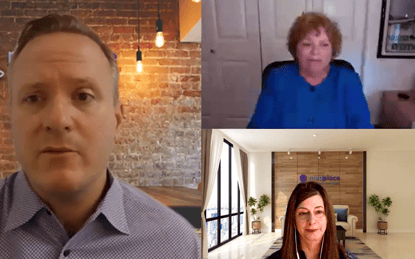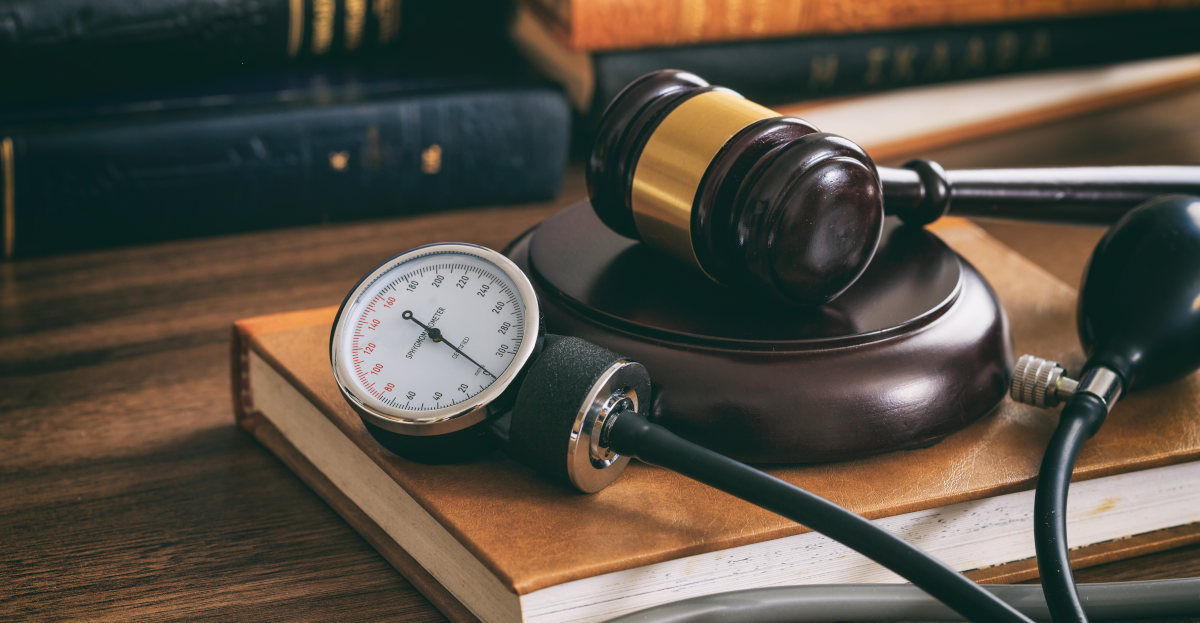Healthcare clinicians save lives and give quality care to patients. However, due to labor market shortcomings, funding and wage shortages, and highly stressful work environments, the healthcare industry is hemorrhaging its most valuable asset: its workers.
Fortunately, these specialists can find a reprieve from clinical stress by seeking opportunities in law. For example, courts need experts like these healthcare professionals for expert witness testimony and claims review. Medplace spoke to Amy Hanegan from Better Witnesses to learn more about what it takes to prepare medical experts for the shift from clinic to courtroom.

Recruiting the Right Expert
Finding the right medical expert is the first step. Traditionally, law firms and lawyers rely on Rolodexes or directories to identify a doctor with relevant expertise, although this process suffers from outdated technology and the overuse of reliable experts.
Modern, innovative platforms like Medplace improve the process. The technology offers matchmaking, records sharing, and communication all in one place.
When leveraging a platform like Medplace, make sure to tailor your case descriptions and questions for the expert to help make more precise matches. Medplace's Adrienne Fugett explains that medical professionals undergo thorough vetting to ensure the highest quality expertise before joining the platform.
Tools for Successful Experts
Organizations must provide their experts with proper context, training, and visuals to use their services best. These experts have extensive clinical experience but may have never had to apply their skills in a legal context.
Once an expert has been selected, organizations need to equip them with the proper materials before proceeding to case review. A ‘best practices' document, video examples of reviews, and clinical context are all invaluable to a reviewer. Reviewers also need reminding that although they may hold themselves to high personal standards, they should approach the case from a place of empathy for all parties and evaluate based on the procedure.
Preparing a Medical Expert for a Jury
For expert witness testimony, fostering communication skills in the expert is paramount to a strong case. They will need to convey their extensive technical knowledge to a jury with limited medical expertise. According to Hanegan, organizations need to coach their experts to use their time best.
Amy Hanegan explains that she often must help expert witnesses hone their approach with a jury.

I find that there's a lot they want to tell the jury. But you need to help them focus on what they need to tell the jury. Are they clear on the allegations that they are addressing? It's amazing to me how they can go off onto tangents.
Additionally, to keep experts focused on the allegations, help them organize the testimony into themes. Rather than a comprehensive analysis of the case, encourage experts to summarize the most significant findings into short, repeatable phrases so jury members can reiterate key facts during deliberations. Hanegan gives two examples:

Themes that the jurors can repeat are important so they can quote those experts. Here are two examples: 'There was no delay in Mr. Jones's cancer diagnosis. Should it be a failure to diagnose?' Or something a little more complicated. 'The placental pathology proves that the baby was damaged three months before birth.'
Most importantly, Hanegan stresses that there is no replacement for practice. Reviewing statements for deposition and testimony with experts multiple times prior to trial can mean the difference between a concise, repeatable answer and a long, meandering statement.
Informative visuals accompanying expert information is another one of the most potent ways to involve the jury. Most jurors want to engage with the information, so design these presentations with them in mind. Hanegan notes that many experts use designs intended for a medically literate audience. Instead, suggest simplified graphics without unnecessary terminology to succeed in testimony.



